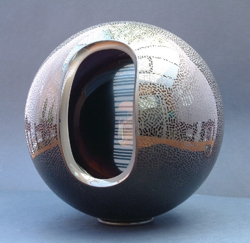How is it that the mind can heal depression through the placebo effect? Placebo is a meaningless treatment that is presented as the real thing, but it can be almost as effective as antidepressants that have been on the market for years.
I can’t know for sure, but I suspect that my brief recovery after taking my first antidepressant (Prozac) could have been a placebo response. The turnaround in my life was complete and immediate.
There was no delay for the drug to build up in my system despite the medical advice that antidepressants take a couple of weeks to become fully effective.
This was the early 90s. I had just read Peter Kramer’s Listening to Prozac and was eager to try the medication. I greeted this new treatment with the enthusiasm and energy that later helped me get through a cancer operation to a speedy recovery.
I stopped taking Prozac after a few months, and it would be a dozen years before I found another antidepressant that worked. Who knows if my original recovery came from placebo or the drug itself?
Antidepressant Trials
We usually hear about the placebo effect and depression in connection with trials for new medications. The established method for proving that they work is to compare the response of patients to the real drug with response to a placebo.
All the attention goes to the difference between the effect of the two treatments. Critics focus on the frequently meager or negative results for the antidepressant compared to the “fake” pill. Irving Kirsch and other researchers even believe that much of the effect of antidepressants can be attributed to the placebo effect rather than the active drug.
But what about the placebo response itself? That’s more remarkable to me than the antidepressant which is designed specifically to treat depression. Placebos are effective with almost any disease or disorder. It’s the wonder non-drug.
For a long time, the placebo effect was dismissed as a sort of mirage rather than anything real. In recent decades, this “trick” of the mind has been taken more seriously. Research is showing that a placebo can induce changes in brain chemistry as well as the experience of healing in patients.
How Does the Placebo Effect Work?
I’m no expert in this, but it seems no one has a satisfactory explanation. There are, though, a few theories that explain different ways placebos could work.
One uses the classic idea of the conditioned response, as in Pavlov’s dogs. Researchers have tested this by first giving a combination of an active drug and a placebo. People respond as expected to the drug but then continue to have the same response after the medication is removed.
Apparently, the body learns to react to the placebo as if it were the drug through an unconscious, automatic learning process.
A different explanation depends entirely on conscious thoughts and feelings. According to this idea, patients form self-fulfilling expectations that the placebo will work since they believe it is the real treatment. The belief that they will feel different as a result of taking it leads them to have the subjective experience of change in their condition.
The fact that “belief becomes biology,” as Norman Cousins put it Head First, has been shown in a number of studies. The close connection between moods, thoughts and changes in biology gets clearer all the time through the recent work of neuroscientists.
Yet, the exact way in which placebos can trigger such a variety of responses to so many diseases is still a mystery. It can’t always be conditioning since the placebo response often occurs at the first use of a new treatment.
The Experience of Healing
Nor is it always a self-fulfilling expectation. That’s the conclusion of one study that added a highly unusual step to the measurement of symptom change on standardized scales. Researchers interviewed the participants to go deeper than simply asking about symptoms. I guess that just isn’t done most of the time.
If researchers routinely did interviews, they might have realized much sooner that the placebo response can’t be captured by scoring symptoms on a rating scale. It’s a human experience of healing. People may track their symptoms, but most of all they want to feel better and function normally in all aspects of living.
This study used a simulated acupuncture treatment for Irritable Bowel Symptom (IBS). That’s an illness with no detectable cause but often linked to anxiety and depression.
In fact, when people who turn out to have depression first go to their primary care doctors, they complain of pain and say nothing about their emotional state. Gastric problems are one of the most common ailments they mention.
Belief and Expectation vs. Hope and Doubt
When the participants signed up for this study, they were told that they might receive a placebo instead of the actual treatment. Far from believing that they would get better, many had no idea what to expect, especially since they had never tried acupuncture before.
Some had a neutral attitude. As one woman said: “I guess it’s a long shot. I don’t know. I have no clue.”
Others had tried so many unsuccessful treatments that they were desperate and willing to try anything. One man said if he were told to wear pink every day, he would do it just to see if it worked. “What do I have to lose?”
Some participants said they didn’t expect to get better but hoped that they would. For them, an expectation meant they thought a treatment was likely to bring improvement, but hope only meant they had a desire that the treatment could work.
Even if they started to feel better, many participants had doubts that it was the acupuncture that made the difference.
“You know, it fluctuates by itself anyway.”
“Maybe I’m just imagining that I’m getting better. I can’t really tell.”
“Maybe I’m making the whole thing up.”
Dramatic Improvements
Although they had a lot of doubt about the effect of the treatment, most had no doubt at all about specific improvements they actually felt. These changes went far beyond the symptom measurements that researchers emphasize.
They studied themselves carefully and looked mostly for broad changes. “I feel great. … I feel like I’m 99% better.” The “treatment” for many worked better than other medications they had been taking.
What mattered most was that they felt they were getting back to normal. They weren’t so worried about the illness and could function the way they wanted to. Some felt able to make major decisions about relationships that they had put off when they had been preoccupied with illness.
One person described feeling a greater calmness and change in the way he thought about himself. He stopped drinking and felt he could be more self-assertive. Some participants reported life changes like these even though measurement scales showed no improvement in specific symptoms.
What Is Healing All About?
Like all studies, this one is hedged about with limitations, and grand claims can’t be based on it. It does show, however, that the placebo effect has many dimensions and that none of the current theories can fully explain how or why it works.
Healing itself is mysterious. The experience of participants in this study sounds like my own recovery. I felt transformed in a basic way and done with depression despite the fact that specific symptoms kept coming back.
The placebo effect isn’t restricted to thoughts or feelings. It is something that happens, a set of changes that can embrace the full scope of living.
The mind is constantly interpreting what happens during an illness like depression. It pulls together all the bits and pieces into a coherent account. People note this new sensation or that feeling. But the key thing is that they put them together into a story that explains the overall experience.
Healing can’t be measured at one or two points during a study. It’s a life change that continues through time.
Most scientists believe that the placebo response doesn’t last long. You’ll often see that stated as fact. Unlike “real” treatment, it’s fleeting.
A recent study pointed out that there is no evidence at all to back up that claim. It demonstrated that the placebo effect does last a lot longer than a few days or weeks. Perhaps some scientists want to believe it’s short-lived because they have a lot invested in proving the effectiveness of a new treatment.
How Do I Get the Placebo Effect?
As powerful as the placebo effect may be, it’s not something you can get on your own. No doctor would deceive you into thinking that the prescription in your hand was for a drug when it was actually for a placebo. It would not only be considered unethical, it could lead to a malpractice lawsuit.
Placebo works because you don’t know whether it’s the established treatment or not. But you do have to know that you are being treated. A placebo has no effect if you’re unaware that you’re getting something for your illness.
One study about the placebo effect in depression concluded that the only practical way to get it was by receiving a prescription for an antidepressant. You would then have the benefit of this effect along with whatever additional help the antidepressant might provide.
What does that say about antidepressants? How much does their effectiveness depends on the placebo response? I’d love to know the answer to that question.
The placebo effect seems to be one of the strongest signals we have that the mind cooperates closely with biology to heal illness, including depression.




I found this post extremely interesting and informative. I hope more studies will be done for the purpose of understanding the placebo effect……it appears to have so much potential for healing (and without any side effects!)
Hi, Janet –
There is a lot of potential here. It’s interesting that people need an external treatment – something they take or get – in order to open the internal healing power. The power is there – how to make it accessible and usable for most people is the problem.
John
In the early days of TA they used to speak of people ‘flipping in’ rather than ‘flipping out’ as a way of describing ‘cure’.
For me it seems to be about agency – that I am in charge of (or maybe just ‘in’) my life.
This whole area I find extremely interesting.
Hi, Evan –
I agree that the sense of feeling some control is part of healing – control in the sense of feeling that you have more power over your life than the illness does.
John